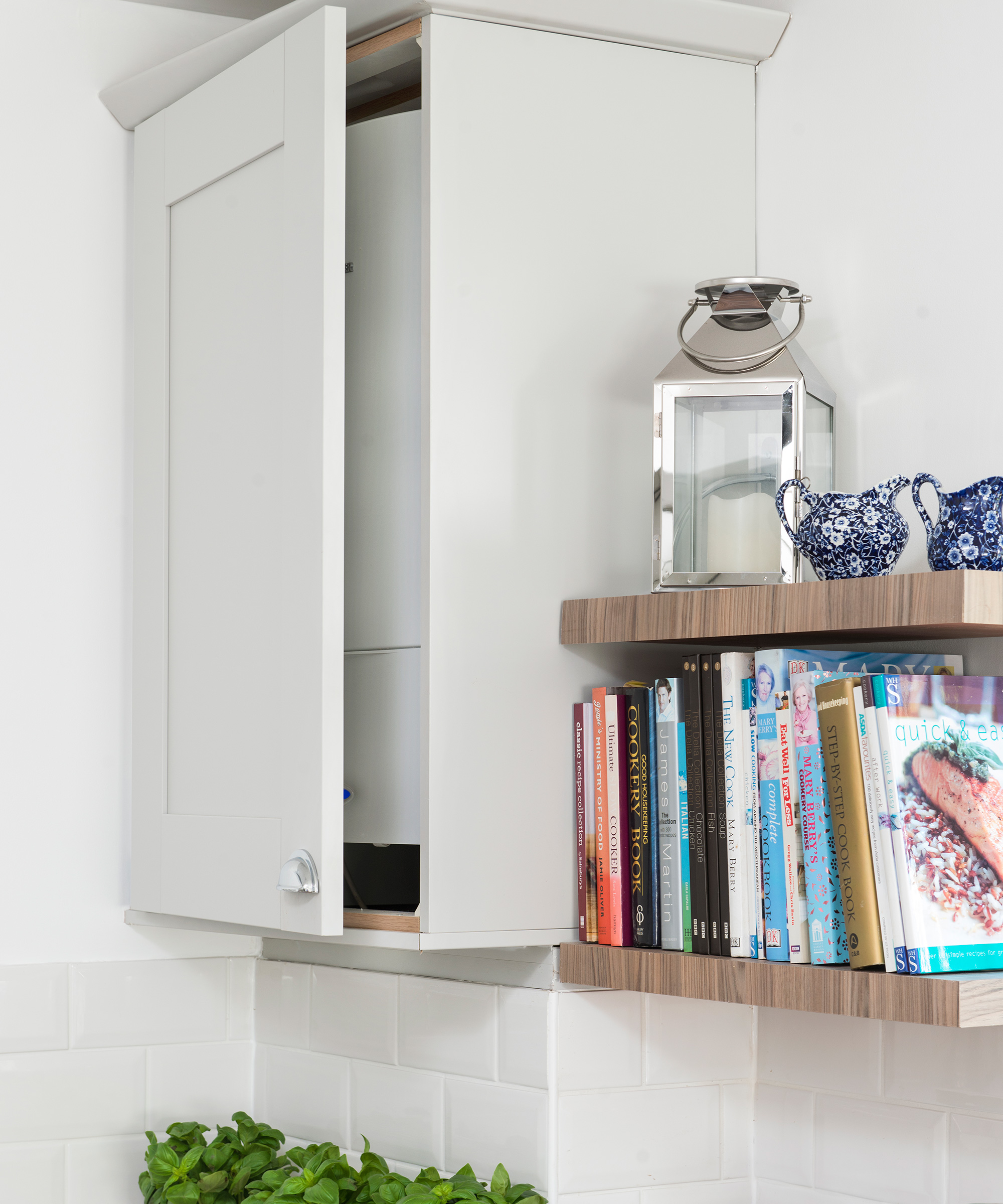How long does a furnace last? And how to make it last longer
Ensure peace of mind for your heating with these top tips to extend the lifespan of your home furnace


Design expertise in your inbox – from inspiring decorating ideas and beautiful celebrity homes to practical gardening advice and shopping round-ups.
You are now subscribed
Your newsletter sign-up was successful
Want to add more newsletters?

Twice a week
Homes&Gardens
The ultimate interior design resource from the world's leading experts - discover inspiring decorating ideas, color scheming know-how, garden inspiration and shopping expertise.

Once a week
In The Loop from Next In Design
Members of the Next in Design Circle will receive In the Loop, our weekly email filled with trade news, names to know and spotlight moments. Together we’re building a brighter design future.

Twice a week
Cucina
Whether you’re passionate about hosting exquisite dinners, experimenting with culinary trends, or perfecting your kitchen's design with timeless elegance and innovative functionality, this newsletter is here to inspire
Few scenarios are as stressful as a furnace breaking in the middle of winter. The lack of heating and the sudden cost of replacing it is enough to leave any homeowner feeling helpless. But how long does a furnace last?
As with any home heating type, getting to know your furnace and learning how to make a furnace last longer can help prevent issues before they arise and prepare you for when they do.
We spoke with HVAC experts to learn more about how long furnaces last and how to keep yours in good condition so you aren't left in the cold when it matters most.
How long does a furnace last?
On average, a furnace can last anywhere between 10 and 20 years, depending on its usage, the type of furnace, and the size of the home it has to heat, begins Glenn Wiseman, experienced Residential Air System Design Technician (RASDT). 'A furnace run constantly in a big home is more likely to wear out quicker than a furnace only used when needed in a smaller flat, for instance.'

‘Generally, if you have not replaced your HVAC in over 10-15 years, it may automatically be time for an upgrade. Even if the system is still technically running, there is a chance your bills are much higher than they need to be due to a decrease in the machine's efficiency,’ Glenn advises.
‘It is likely that in this time, your home's air quality has gone down without you realizing it. Contact a professional who can perform a thorough furnace inspection and discuss how to maintain or replace your HVAC system.
‘Ultimately, a faulty system will be an out-of-pocket expense, but the sooner you deal with it, the more likely it will cost you less.'
Design expertise in your inbox – from inspiring decorating ideas and beautiful celebrity homes to practical gardening advice and shopping round-ups.
How to know if your furnace needs replacing

'There are several signs your furnace needs replacing, all of which can be verified by having a service engineer come out to assess and service your furnace,' explains Jose Aleman, HVAC expert at BaconPlumbing & Heating Specialists
'As with many appliances, a sudden drop in quality is a sign it may need replacing. It is not just heating mistakes that may be making your home colder, after all. Insufficient or uneven heating in your home, bad smells, poor air quality, and unusually loud sounds should all be cause for concern when it comes to furnaces,' Jose says.
‘Any visible signs of damage such as a yellow pilot light (it should be blue) or cracks and rust should also be checked out to ensure there is nothing sinister,’ he continues. ‘More subtly, you may also see a rise in energy bills as your furnace becomes less efficient and has to work harder to produce the same amount of heat. Having your furnace serviced or replaced may be pricey, but it will help lower your heating costs in the long run.’
If your home is not being heated efficiently, be sure to check for any common thermostat problems as a first line of defense. It may be that your control panel is programmed incorrectly, or it just needs a good clean. With this ruled out, you can then turn to your furnace.
How to make a furnace last longer

The main trick to making your furnace last longer is furnace maintenance, namely making your heating more efficient to prevent the furnace from working harder for longer than it needs to, preventing it from wearing down more quickly. 'Ensuring that your home is well insulated and retains heat will also help to reduce how hard your furnace has to work to bring your space up to temperature,' adds Brad Gall, owner and founder of BG Electrical and Air Con.
Furthermore, picking the right furnace type for your home is also essential if you want it to last: ‘It begins with choosing the right one, and not just in terms of quality. Sizing is also important as it determines how hard the furnace needs to work to heat your space.’
'Besides making the right choices in terms of appliances, continual maintenance is also a must,' Brad continues. 'Fixing small issues before they break your furnace will, of course, make your furnace more efficient and prevent a dangerous failure.'
It is vital that any maintenance work on your furnace is carried out by a licensed professional so you are not putting yourself or your home at risk.

Brad Gall is the Director of BG. As a qualified serviceman, he has gathered a great team of hard working, dedicated and detail oriented electricians and air conditioning specialists.
FAQs
How do I know if my furnace needs maintenance?
Typically, a furnace needs maintenance when you start to notice unusual behavior, such as a loud sound, inconstant heating, a strange smell, or a tripped carbon monoxide alarm.
The safest way to ensure your furnace is working correctly is to have a regular service completed by a professional to check for any damage or wear that could turn into a bigger problem later down the line.
Do furnaces need to be serviced every year?
Furnaces should be serviced at least once a year by a qualified HVAC professional to ensure they are not damaged or worn out. This can help to prevent a range of common furnace issues, but most importantly, will ensure the safety of you and your household by spotting any potential leaks or breaks in advance.
What do I do if my carbon monoxide alarm is triggered?
If your carbon monoxide alarm is ever triggered in your home, it is important to ventilate the area, leave, and move to somewhere with fresh air (somewhere outside, away from the building). Call for a professional to come and take a look at the leak to prevent serious – or even fatal – health repercussions. It is also a good idea to consult a healthcare professional if you are concerned you have been exposed to carbon monoxide.
So, if your home is cold even with heating, or your energy bills have shot up and rising prices are not solely to blame, it may be worth calling out a professional to take a look at your furnace. They may be able to suggest some setting adjustments such as adjusting the flow temperature to reduce how hard your furnace has to work, making it last longer, and helping keep you warm while saving you money at home.

Chiana is Homes & Gardens’ kitchen appliances editor. With a lifelong passion for cooking and baking, she grew up experimenting in the kitchen every weekend with her baking-extraordinaire Mom, and has developed a great understanding of how tools and appliances can make or break your ideal relaxing kitchen routine.